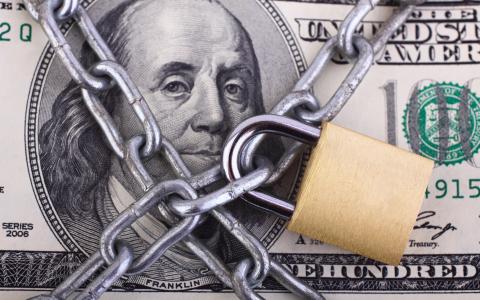
The Spanish Royal Family has been plagued by scandals and divisions since long before the 2014 abdication of its once-patriarch and very popular King Juan Carlos - now facing serious accusations of money laundering - to his son, King Felipe VI.
The latest bombshell shaking the royal house involves secret audio recordings of princess Corinna zu Sayn-Wittgenstein, a German aristocrat living in Monte Carlo who for years has been romantically linked to the 80-year-old former king and now accuses him of using her name to buy property in Morocco, of accumulating a secret fortune hidden in several Swiss bank accounts under the name of one of his cousins, Alvaro d'Orleans Bourbon, of using fake cut-outs to commit tax fraud and of taking millions in commissions on state contracts.
The German aristocrat claims that Juan Carlos pocketed over €80 million from a contract with Saudi Arabia for a high-speed train running between Riyadh and Medina, planned to start operating in September after years of delays and a cost overrun of 210 million euros, according to TheNewArab.
Sayn-Wittgenstein would have explained that Juan Carlos had repatriated a portion of those funds thanks to a 2012 government tax amnesty because he wanted money to divorce his wife, Sofia, and marry her.
As if that wasn’t enough to embarrass the already-distressed Spanish monarchy and feed the summer-lull rumor mill, the recordings, originally published by Spanish investigative journalism websites Okdiario and El Español, reportedly feature conversations between the former king's 53-year-old alleged mistress, Corinna Larsen, better known as zu Sayn-Wittgenstein from her marriage to a wealthy nobleman, with retired police commissioner Jose Manuel Villarejo, jailed since last November and under investigation for money laundering.
That’s not all: According to shattering revelations by the Spanish press, the audio recordings were made in 2015 in London through a lapel microphone worn by Villarejo, who had, in fact, allegedly spied on and recorded dozens of influential people, which he turned into a lucrative business of extortion.
The euphemism he reportedly used for his activities was "crisis management projects," through which he made a fortune starting in 1992 - extorting €30 million between 2013 and 2017 alone.
Investigators suspect that he revealed the recordings implicating the former king as a way to negotiate a release or a lower sentence with prosecutors.
Since his abdication, the former king has kept a low profile as his 50-year-old son and head of state, Felipe, struggles to contain the onslaught of secessionism threatening the unity of the country and the anti-royalist forces asking for an end to the monarchy.
While those movements have been exacerbated by other recent scandals, observers classify this one as still more explosive, and a nightmare not only for the Royal Family but for the new leader of the Socialist government, Prime Minister Pedro Sanchez.
“It was thought that the turpitude of Casa Real had been buried for good,” writes Le Point. “It's the opposite: The worst seems to be ahead.”
According to the magazine, the Spanish government and the public generally thought that they “knew well the path of the ex-king, appreciated his qualities and tolerated his faults: good living, friendly, hedonistic sportsman (sailing and skiing), womanizer, friend of the great figures of the world - recommendable or not - unscrupulous hunter.
But being involved in financial crime and tax evasion to the detriment of his country seriously undermines the reputation of the former king and destroys a myth.”
The fresh revelations have fueled various political and media figures demanding an end to the "pact of silence," a tacit agreement not to criticize the monarchy.
As many as six parliamentary commissions, including Podemos and Basque and Catalan nationalists, have asked for an official investigation. "In a democracy, there can be no room for impunity," said a Podemos spokesman. “Nobody can be above the law, whatever his name.”
Under current law, only the Supreme Court could hear a case against Juan Carlos and only for events that happened since his abdication.
The relations within the Spanish royal family have also been deteriorating with the scandals. “Felipe’s bid to distance himself from the scandal-ridden reign of his father has eroded the appearance of family unity,” according to the country's main daily newspaper, El Pais.
In 2016, King Juan Carlos outraged his countrymen after being "discovered" in Botswana hunting elephants during a "secret" trip organized by Sayn-Wittgenstein at the peak of the country's severe recession. The escapade became public only when he broke his hip during the hunt and had to be transported to a hospital.
The monarchy's reputation was further tarnished when, also in 2016, his youngest daughter, the Infanta Cristina, and her husband were accused in a corruption probe that triggered a flood of protests against the Casa Real.
Latest revelations have also raised suspicions that Juan Carlos himself was involved in that scandal, known as the Noos affair.
The Noos Foundation, chaired by the former king's son-in-law, Iñaki Urdangarin, siphoned at least six million euro of public money into tax havens. Urdangarin subsequently was found guilty and is serving a six-year prison sentence that began in June this year.
Although she was acquitted in the case, the Infanta Cristina has been ostracized by her family and lives in Geneva with their four children.
Meanwhile, a rift between Queen Letizia and her mother in law, former Queen Sofia, has been food for media gossip for months.
"The monarchy has received a fatal blow," Jaime de Peñafiel, a royal observer, said of the latest scandal. “The king may still have illusions, but the institution does not have much time left."



